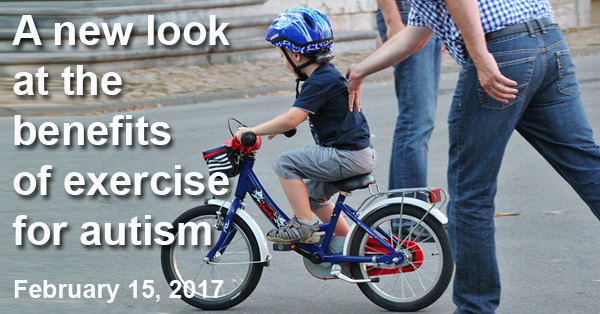Archives
February, 2017
Select a different month in the archive
Exercise’s Therapeutic Affects Vary in People with ASD
By Chelsea E. Toledo, M.A. on February 15, 2017

Background: While no “one-size-fits-all” treatment exists for people with autism spectrum disorder (ASD), a variety of therapies are available to ease the social, behavioral and communicative symptoms for those who might need help. Research has shown that exercise can improve cognitive function in people with learning difficulties, but exercise has not been widely studied as a potential therapy for ASD.
What’s New: On July 13, 2016, the Journal of Autism and Developmental Disorders published a meta-analysis – or an umbrella study combining the results from previous research on a single topic – on the cognitive effects of exercise in individuals with ASD. The researchers reviewed data from 22 studies, with a total of 579 participants between the ages of 3 and 29. They found that exercise had a modest effect on cognitive function overall, but that the effect wasn’t consistent for all cognitive symptoms. For instance, the study suggested that exercise could improve individuals’ performance on tasks such as assigning value to coins, but was less effective at improving executive function tasks such as repeating a series of digits that appeared previously on a screen.
Why it’s important: This study supports exercise as an inexpensive intervention for people with ASD to aid in some cognitive functions alongside other therapies. Future studies could pinpoint what types of exercise are most helpful for people on various parts of the spectrum.
Help me understand :
| Source(s) : |
| Tweet |

